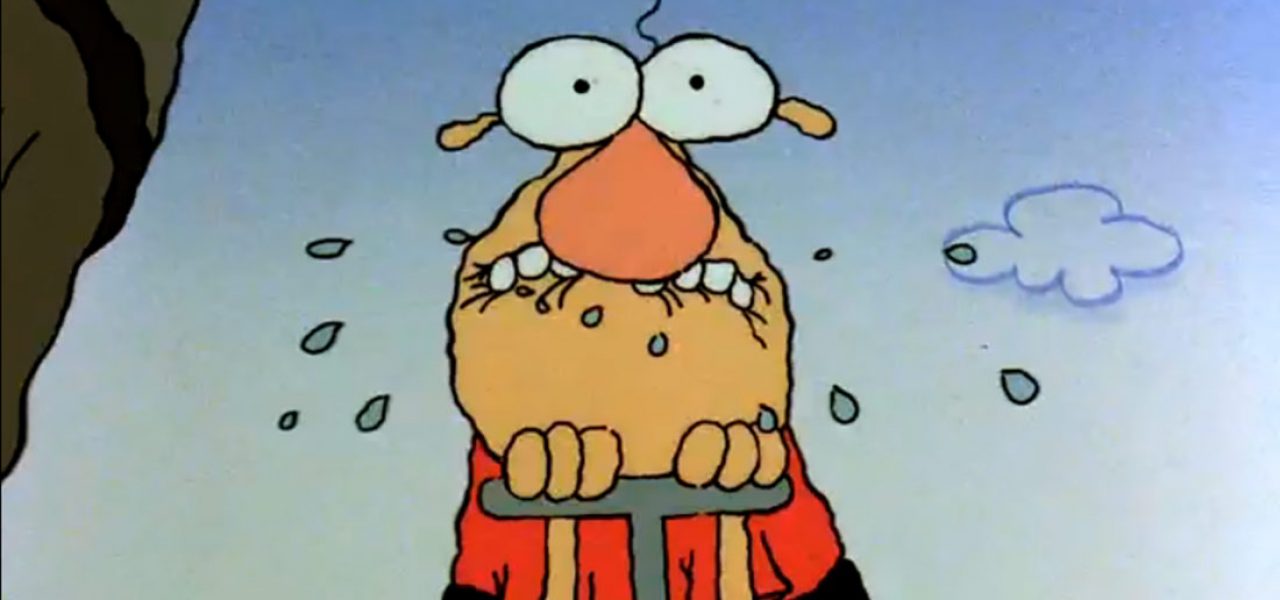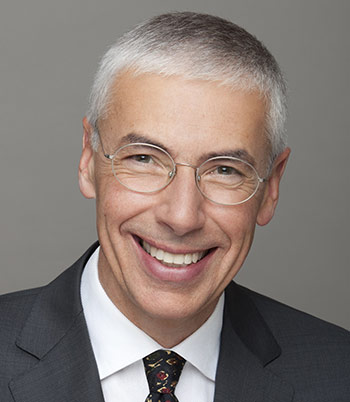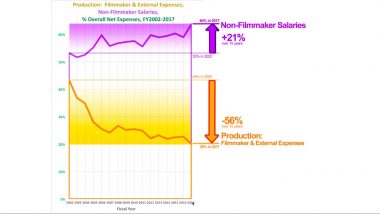

Hundreds Of Canadian Filmmakers Declare ‘Crisis’ As NFB Commissioner Is Reappointed
After simmering for years, the dispute between filmmakers and management at the government-run National Film Board of Canada (NFB) has reached a boiling point. Hundreds of freelance directors affiliated with the organization have been lobbying for a change of leadership, in the face of what they characterize as administrative bloat and plunging production budgets. The re-appointment of Claude Joli-Coeur to a new three-year term as the NFB’s film commissioner, which was announced last week, has prompted an outcry.
The respected public producer-distributor “is in crisis,” states NFB/ONF Creation, a group of over 250 directors working in animation, documentary, and emerging media. The group includes a veritable who’s who of Canadian animation legends, among them most of the NFB’s Oscar winners and nominees over the last four decades, including Chris Landreth (Ryan), Theodore Ushev (Blind Vaysha), Alison Snowden and David Fine (Animal Behaviour), Torill Kove, (The Danish Poet), Richard Condie (The Big Snit), Cordell Barker (The Cat Came Back), Amanda Forbis and Wendy Tilby (When the Day Breaks), Caroline Leaf (The Street), Patrick Doyon (Sunday), Janet Perlman (The Tender Tale of Cinderella Penguin), Chris Hinton (Blackfly), and Ishu Patel (Paradise).
“Working conditions for directors have deteriorated to the point where, for many, it is no longer financially viable to create works with the NFB,” say the filmmakers. They are not taking issue with the organization’s budget (currently C$62 million), which fluctuates in line with the political climate, but with the way the money is spent.

According to the group, spending on production — as a proportion of the NFB’s overall net expenses — dropped by 56% between 2002 and 2017. The same period saw a rise in spending on salaries for non-filmmakers, and also on institutional, legal, and human resources services, by 21% and 45% respectively. The group offers a concrete example: the budget of the English animation studio has fallen from $1.5 million to $1.1 million. All in all, it says, less than one-fifth of the NFB’s $62M budget now goes toward actually producing content (C$12 million), as priorities shift toward branding and administration.
Joli-Coeur disputes this picture. Speaking to The Globe and Mail (article paywall) after his reappointment, he said that half the NFB’s money is spent on production, with 34% going toward distribution and 16% toward overhead costs.

The disagreement hinges on how production costs are defined. NFB/ONF Creation notes that Joli-Coeur’s calculations factor in “internal costs” covering administration, executive salaries, etc. “These are costs that are incurred regardless of whether films are made or not and, according to the group, should not be part of the calculation.” Their own figures are based on “external costs”: funding for artists, and the services and supplies they need to do their work. The directors see this as the true measure of the NFB’s support for production.
NFB/ONF Creation’s case is made in a video by filmmaker Chris Landreth (see below). Drawing on data obtained through access to information requests, he meticulously illustrates the group’s calculations in a series of graphs. He explains that they use 2002 as their starting point because that’s when the NFB changed its model and broadly started contracting filmmakers, rather than keeping them on staff. In other words, the years between 2002 and 2017 can be directly compared.
The directors want to see the NFB’s investment in new content return to 2002 levels, when external costs stood at 44% of the organization’s budget (as opposed to 20% in 2017). They presented this demand to the Canadian government, specifically Pablo Rodriguez, minister of Canadian heritage and multiculturalism, in early June, along with three others: greater transparency with regard to expenditures, a separation of the roles of film commissioner and chair of the board of trustees (both of which Joli-Coeur currently holds), and “meaningful, regular consultations” with the creative side of the studio. The petition was submitted in partnership with L’Association des réalisateurs et réalisatrices du Québec, the Directors Guild of Canada, and the Documentary Organization of Canada.
It followed two years of discussions between the filmmakers and the NFB’s managers, which have hit a dead end. “The number of meetings I’ve had with them is enormous, and my door has always been open,” the commissioner told The Globe and Mail. “Unfortunately… we haven’t been able to convince them that we’re telling the truth. That’s sad, but what can I do?” Joli-Coeur defends his record at the NFB, noting that the number of productions is rising, and adding that the organization is a safer environment for artists than the private sector.
NFB/ONF Creation refutes this, too. “Filmmakers are paid less now at the NFB than they were 20 years ago — far less than most NFB staff employees and with no pension or benefits. This practice is nothing short of exploitative and is particularly shameful in a non-profit federally funded institution,” the group said in a statement. While the number of productions may be on the up, “budgets today are much lower and films often shorter.”
With Joli-Coeur’s mandate renewed for three years, the feud is set to run on. Despite the commissioner’s insistence that he wants to continue the dialogue, the filmmakers feel as though their demands have been stonewalled. “NFB/ONF Creation cares deeply about the NFB, in part because the collective remains fiercely attached to its ideals, but also because this unique institution has nurtured them as artists,” said the group. “If the NFB is to continue to lead the way — to break new ground in animation, documentary, and new media — change must happen. Its very survival is at stake.”
Here is the complete list of filmmakers who are demanding the NFB restructure its budgeting and halt the decline in production funding:
Aerlyn Weissman
Aeyliya Husain
Alethea Arnaquq-Baril
Alex Boya
Alexandra Lemay
Alexandre Chartrand
Alison Burns
Alison Loader
Alison Rose
Alison Snowden
Amanda Forbis
Amit Breuer
André Roy
Andres Livov-Macklin
Anne Henderson
Aube Giroux
Avi Lewis
Bachir Bensaddek
Barri Cohen
Barry Greenwald
Barry Lank
Belinda Olford
Barry Lank
Benjamin Hogue
Benjamin Taylor
Bertrand Carrière
Brandon Blommaert
Brenda Longfellow
Brett Gaylor
Brett Story
Bruce Alcock
Bruno Baillargeon
Bruno Boulianne
Cam Christiansen
Cari Green
Carla Coma
Carlos Ferrand
Carmen Garcia
Carol Beecher
Carole Poliquin
Caroline Leaf
Caroline Martel
Caroline Monnet
Catherine Hebert
Catherine Lepage
Catherine Martin
Catherine Van Der
Donckt
Cathy Gulkin
Celine Baril
Charles Konowal
Charles Officer
Chris Landreth
Chris Lavis
Chris Hinton
Chris Romeike
Christy Garland
Claire Blanchet
Claire Maxwell
Claude Cloutier
Claude Demers
Maciek Szczerbowski
Co Hoedeman
Colleen Wagner
Cordell Barker
Cynthia Banks
Dale Hayward
Danic Champoux
Daniel Conrad
Daniel Schorr
Danielle Sturk
Danny Nowak
Darryl Nepinak
David Fine
David Seitz
David Springbett
DenYs DesJardins
Diane Obomsawin
Don McWilliams
Dorothy Henaut
Duncan Major
Ed Ackerman
Eisha Marjara
Eleonore Goldberg
Elise Simard
Elle-Máijá Tailfeathers
Erica Pomerance
Eshan Gharib
Eva Cvijanovic
Eve Lamont
Felix Rose
Frances McKenzie
Francois Laliberte
Françoise Dugré
Fred Casia
Garry Beitel
Gary Burns
German Gutierrez
Ginette Pellerin
Glenn Gear
Greg Labute
Halya Kuchmij
Harold Crooks
Helene Klodawsky
Howard Wiseman
Howie Shia
Hugo Latulippe
Iolande Cadrin-Rossignol
Isabelle Lavigne
Isabelle Raynauld
Ishu Patel
Jacques Drouin
James Braithwaite
Janet Perlman
Janice Nadeau
Jason Lee
Jean-Claude Coulbois
Jean-François Caissy
Jean-Francois Levesque
Jennifer Dysart
Jill Haras
Jo Meuris
Joanie Lafrenière
Jody Kramer
Joe Balass
John Greyson
John Paskievich
Joseph Hillel
Joyce Borenstein
Julie Perron
Julien Elie
Julien Frechette
Kalli Paakspuu
Karine Lanoie
Karl Lemieux
Kat Cizek
Kathleen Weldon
Kevin Kurytnik
Keyu Chen
Leopoldo Gutierrez
Lindsay McIntyre
Lisa Jackson
Lois Siegel
Lori Malépart-Traversy
Louise Johnson
Luc Bourdon
Luc Côté
Luc Otter
Luka Sanader
Lynn Smith
Malcolm Sutherland
Manfred Becker
Marie Helene Turcotte
Marie Ka
Marie-Josée Saint-Pierre
Mark Achbar
Mark Morgenstern
Marlene Millar
Marquise Lepage
Martin Duckworth
Martin Rose
Martine Chartrand
Marv Newland
Mary Lewis
Matthew Rankin
Mathieu Roy
Matthew Talbot-Kelly
Maureen Judge
Mélanie Carrier
Merit Jensen Carr
Michel Giroux
Michèle Cournoyer
Michèle Lemieux
Mike Maryniuk
Moïa Jobin-Paré
Moira Simpson
Moïse Marcoux-Chabot
Munro Ferguson
Myron Campbell
Nadine Beaudet
Nadine Gomez
Neil McInnes
Nicolas Paquet
Nicolas Zavaglia
Nicole Giguère
Oana Suteu Khintirian
Oliver Hockenhull
Olivier D. Asselin
Oliver Higgins
Paloma Dawkins
Pamela Gallant
Parissa Mohit
Pascal Gélinas
Pascal Sanchez
Pascale Ferland
Patricio Henriquez
Patrick Bouchard
Patrick Doyon
Patrick Lapierre
Patrick Péris
Paul Davis
Paul Driessen
Paul Morstad
Peter Mettler
Phil Hoffman
Philip Szporer
Philippe Baylaucq
Philippe Lambert
Philippe Vaucher
Pierre M. Trudeau
Randall Okita
Raquel Sancinetti
Rebecca St. John
Reiner Bello-Sanchez
Rhayne Vermette
Richard Brouillette
Richard Condie
Richard D. Lavoie
Robin McKenna
Samara Chadwick
Sandra Rodriguez
Sandy Greer
Sarah Taylor
Scott Allan
Serge Giguère
Shabnam Sukhdev
Shannon Walsh
Sheldon Cohen
Shira Avni
Simon Beaulieu
Simon Cottee
Simon Plouffe
Sophie Bissonnette
Sophie Deraspe
Stacey Tenenbaum
Stephanie David
Stephen McCallum
Stephen Smith
Steve Patry
Sturla Gunnarsson
Susan Rynard
Susan Wolf
Sylvain L’Espérance
Sylvie Trouvé
Sylvie Van Brabant
Tali Prevost
Theodore Ushev
Thibaut Duverneix
Thomy Laporte
Torill Kove
Vali Fugulin
Vanessa Dylyn
Vincent Morisset
Vital Kasongo
Wendy Tilby
Will Prosper
Yanick Létourneau
Yung Chang
Zaynê Akyol
(Image at top: “The Cat Came Back” by Cordell Barker)
